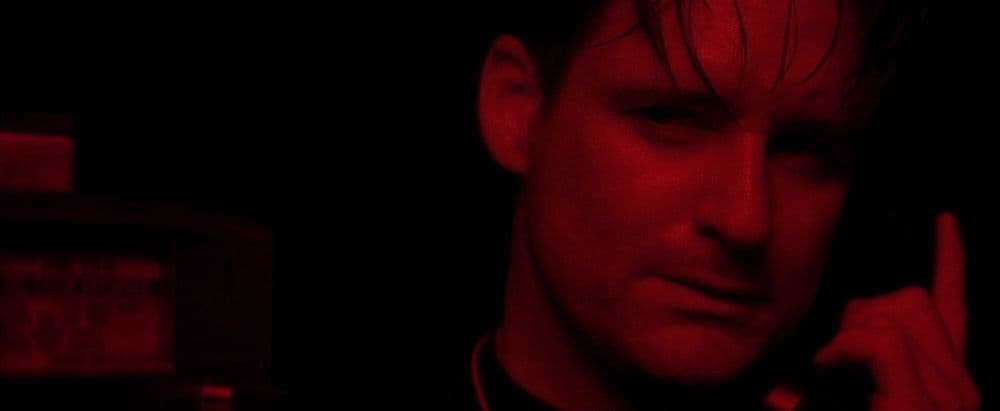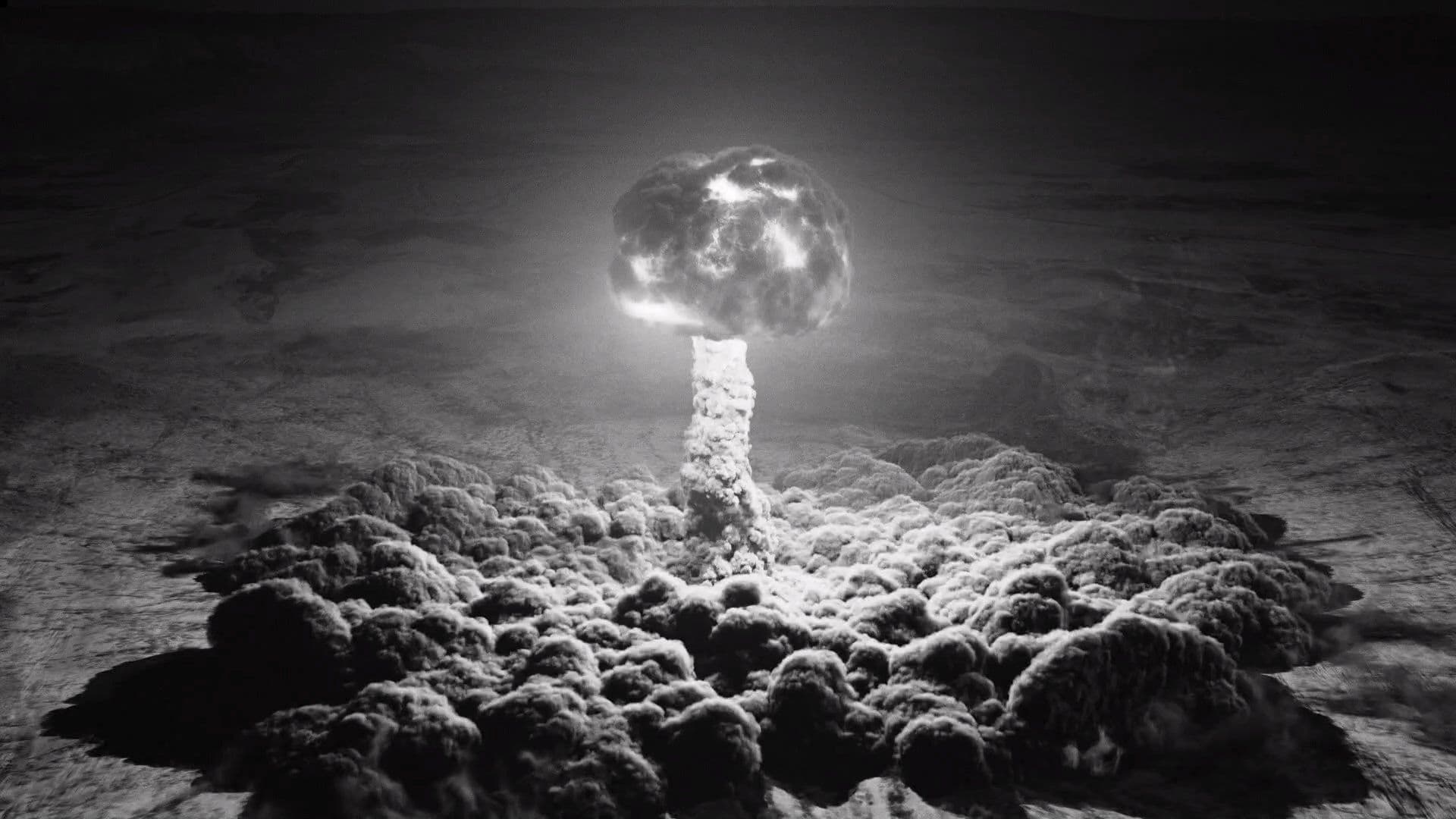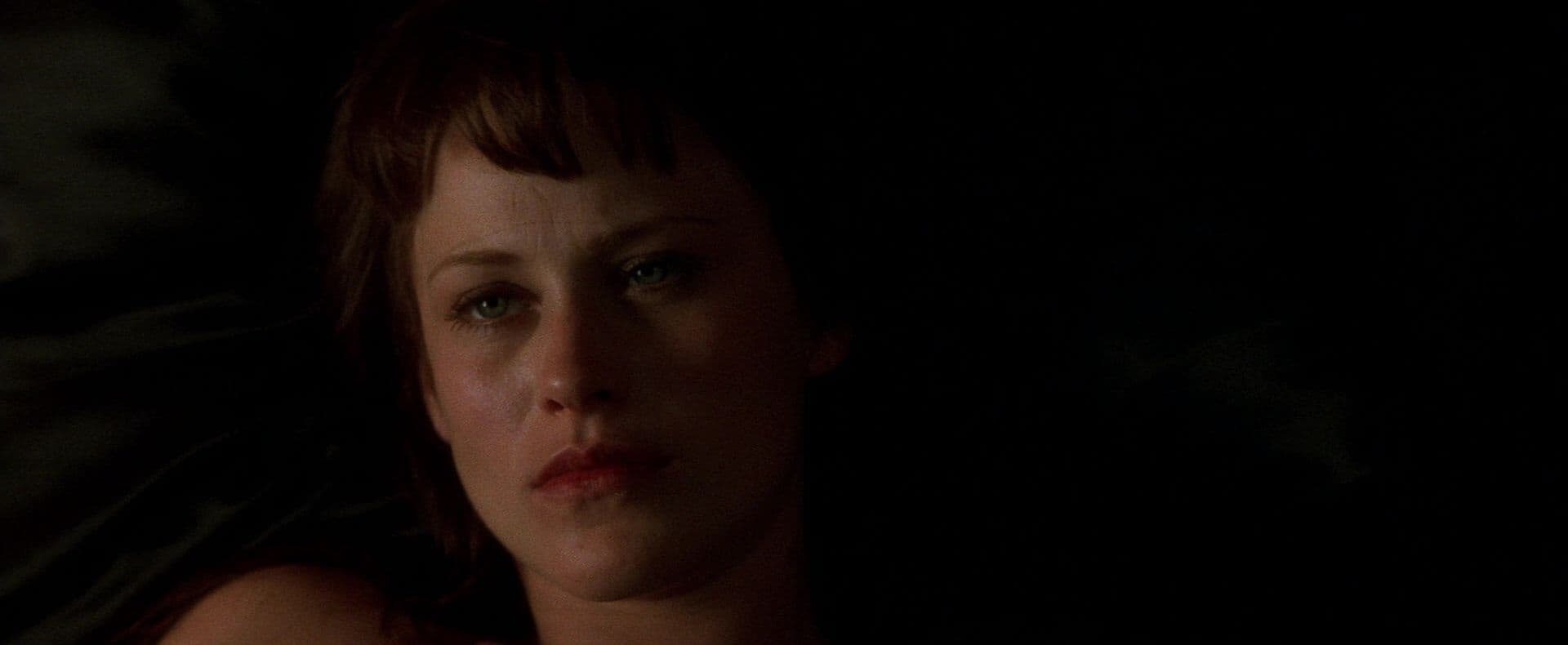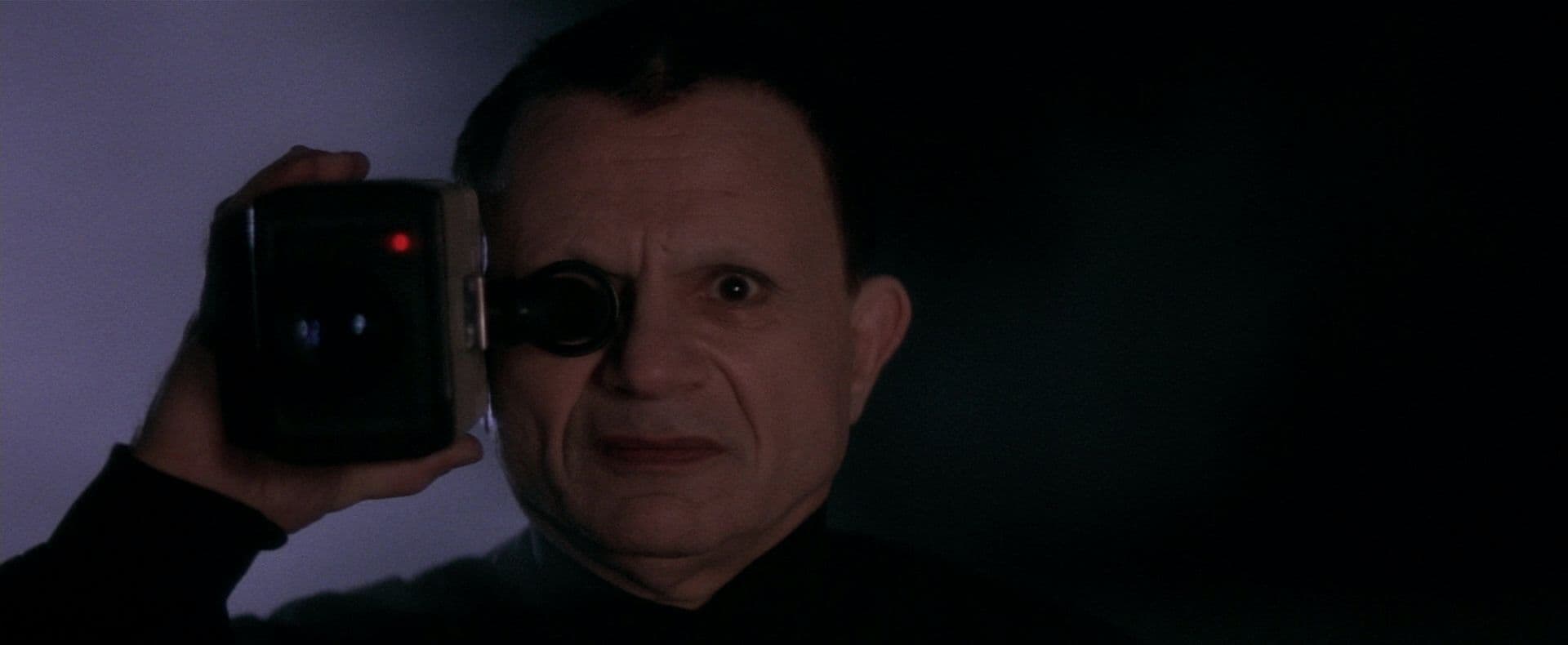We've Met Before, Haven't We?
Stray thoughts on Lost Highway
August 9, 2022

Caught the restoration of Lost Highway in theaters recently. Still thinking about it.
In a few interviews, Lynch said he was thinking a lot about O.J. Simpson while writing the film with Barry Gifford:
"Here is a guy who—at least I believe—committed two murders, and yet is able to go on living and speaking and doing and golfing... How does the mind protect itself from that knowledge and go on?"¹
Žižek's plot analysis² seems more or less correct with that inspiration in mind: the main character, Fred Madison, emasculated by his sexual incompetence, murders his wife, Renée, in a fit of jealous rage before fantasizing a life as the younger, cooler, more sexually-capable Pete. This fantasy deteriorates as a Renée-doppelgänger named Alice enters the picture, embodying all of his real world suspicions. She's the construct of a mind that's seen too many film noirs—a blonde femme fatale who fraternizes with mobsters and eventually goads Pete into committing a robbery that results in a murder. As the fantasy decays further, Pete and Alice escape to the desert, where she delivers one last façade-shattering emasculation, declaring "You'll never have me," mid-intercourse. Fred takes his original form and proceeds on another violent rampage, murdering Renée's would-be extramarital lover and employer, Dick Laurent, over multiple Rammstein needle drops. The film ends with Fred leading a Simpsonian police chase into the desert before spontaneously combusting in his car.
Such an ending feels almost hopeful in retrospect. I'm thinking of the grimly relevant actions of Robert Blake, who plays the Mystery Man in the film and, like Simpson, was acquitted of his own wife's murder in 2005 before losing a civil trial for her wrongful death, saddling him with insurmountable debt. Neither of these men were destroyed by their rage or guilt or whatever atomizes Fred Madison. They instead partake in odd attempts at personability: Simpson can still be found posting awkward front-facing camera videos on Twitter, while Blake uploads regularly to his YouTube channel "Robert Blake I Ain't Dead Yet, So Stay Tuned..." where he recounts Little Rascals stories and tries to hawk old memorabilia³, each existing in a state somewhere between sad, demented, and aggrieved, both virulently maintaining their respective innocence. Rather than combusting, they each seem doomed to wither away in whatever public light is still available to them as discomfiting characters in stories most people would prefer to forget.

Žižek, the dutiful materialist, describes Fred and Renée's bourgeois existence as a "drab, gray, upper-middle class, suburban reality."⁴ We can tease out a common theme in Lynch's work via this idea: the boredom and impotence of the privileged life pushing characters towards a dangerous mystery lurking just on the other side of the tracks, away from their comfort. Note the arcs of several characters in Twin Peaks (Laura, Leland, Donna, Audrey—basically every high school student), Jeffery Beaumont in Blue Velvet, or Betty Elms in Mulholland Drive ⁵. Consider also Fred's fantasy image of himself: a mechanic ("I wanna live like common people!") who lives with his parents and whose main client is a mob boss.
It's not new to suggest Lynch's supernatural characters are personifications of this amorphous mystery and evil (Bob in Twin Peaks, the man behind the diner in Mulholland Drive, the Mystery Man in Lost Highway). If we take these characters as representations of more or less the same thing, a conception of evil—or what could be considered a distinctly American evil—emerges. In Lost Highway, we're told that this evil must be invited, that it goes only where it's wanted, and that siding with it comes with a price. In Mulholland Drive, we see a character investigate this evil, or what he says is causing his "god-awful feeling," only to enter a state catatonia when encountering it—"it" taking the form of a monster resembling a homeless person. And in Twin Peaks: The Return, we're shown an atomic blast that births this evil into existence, as Bob emerges from the chaos of a nuclear test in Los Alamos, infecting our world in subtle ways before preying on the "decent" people of that idyllic small town where "a yellow light still means slow down."
Thus emerges the post-war Faustian bargain: comply with the evil, accept its existence on the imperial and domestic periphery, where bombs are dropped and resources are extracted, or where the poor at home live out tormented lives, and in return, prosperity and comfort will be yours. Given enough time, though, this fantasy, this oft-spoke of "dream" will erode as the chaos comes home, as the children drift away, drawn to anything that will supplant this "god-awful feeling." This is the water. And this is the well. Drink full, and descend.

What does Fred do for a living? He's the tenor saxophone player in a strobe-doom-jazz band, naturally.
It's not lost on me that this is a convenient Freudian representation for someone trying their damndest and failing at sex, I get it, but isn't there something else going on here? Take this first exchange between Fred and Renée:
Renée: You don't mind that I'm not coming to the club tonight?
Fred: What are you going to do?
Renée: Stay home. Read.
Fred: Read? Read? Read what, Renée?
It's my hobby, Janice. Why you gotta belittle it? Poor Fred is relegated to the soundproofed spare bedroom, while his disinterested wife parties with known pornographers! Watch as he sheepishly admits this fact to the oafish detectives who epitomize the Nick Mullen police tweet, who she trusts to protect their home more than him. Makes you wonder which of Lynch's three ex-wives didn't fully appreciate him as an artist, which regularly assailed his masculine pride.

The pivotal moment in the film comes when Alice has disappeared and Fred finds himself alone in a cabin in the desert with the Mystery Man. He is threatened not with a knife or a blade—tools the Mystery Man will later come to use—but a camcorder. Earlier, we're told Fred doesn't like cameras, because he "likes to remember things his own way... Not necessarily how they happened." This all plays well with the plot points discussed above, that Fred prefers the fantasy—in which he's a decent guy who definitely doesn't suck at sex—to his real-world disappointments. But why such emphasis on the camera?
The chief concern in both still and motion photography is exposure, i.e. the amount of light reaching the film strip or digital sensor, which, phrased differently, could be considered the degree to which the subject is revealed. In 1991, an amateur videographer revealed the transgressions of the LAPD by filming officers savagely beating Rodney King. Few things did more to implode O.J. Simpson's image as dorky Hertz spokesman, cameo actor, and all-around charming guy than the grainy helicopter camera footage of his white Bronco chase that cut into every major network's programming for one hour in 1994, displacing even the broadcast of the NBA Finals. And in 1996, a year before the film's release, Jeffrey Epstein would lead a young Maria Farmer into his "media room" where monitors displayed live feeds via hidden cameras of the bedrooms and bathrooms of his New York mansion, presumably for blackmail purposes. What is Lynch pointing his camera at? What exposure comes from Lost Highway?
As Dick Laurent is laying in the desert sand, blood spilling out of the wound in his neck, the Mystery Man shows him a clip on a portable television of a snuff film starring Renée and and a male talent played by Marilyn Manson⁶. The audience sees a flashback of Laurent excitedly groping Renée while the film plays to a cadre of Hollywood creeps. As the clip runs out to static, the Mystery Man puts a bullet in Laurent's head.
Again, it makes you wonder. Leading up to this film's production, Lynch had spent about fifteen years in Hollywood. According to accusations from countless women that bear an eerie resemblance to Betty's audition scene in Mulholland Drive, Harvey Weinstein was sexually assaulting aspiring actresses throughout this entire period, a secret so open that, by the 2000s, sitcoms were dropping unsubtle jokes about it. The whole awful story suggests that Lynch didn't need to know about Weinstein in particular, but rather such behavior was an industry norm. In this sense, the Mystery Man isn't so much a representation of amorphous evil, but of karmic force, ensuring what is reaped is also sown. Thinking of the world in such terms feels like its own fantasy, as it seems the chaos rarely comes home for these people. The bastards always find a way to keep golfing.
Anyway. Good flick.
Now Listening:
Qalaq by Jerusalem In My HeartRecently Watched:
- Nope (2022), dir. Jordan Peele
- Us (2019), dir. Jordan Peele (rewatch)
- Heat (1994), dir. Michael Mann (rewatch)
- Benedetta (2021), dir. Paul Verhoeven
- Sorcerer (1977), dir. William Friedkin
- Tenebrae (1982), dir. Dario Argento
- Lux Æterna (2019), dir. Gaspar Noe
¹ "Lost Highway extra, Interview with David Lynch".
² Pervert's guide to Cinema, dir. Sophie Fiennes, writ. Slavoj Žižek, 2006.
³ I got through half of one episode, but had to turn it off when he produced a picture of himself as a kid in blackface in the film Mokey. The set seems to be his home, where he's written motivational sayings on the plain white walls ("NEVER COUNT OUT A WINNER, NEVER BET ON A LOSER") in near-illegible scrawl. Spooky shit indeed.
⁴ ibid.
⁵ Mulholland Drive is a more interesting case because it could be read as an inversion of this theme, where the reality is the dismal, impoverished life of a failed actress and the fantasy is the innocent, middle-class bumpkin with dreams of stardom.
⁶ Manson would find his home among the creeps, as later exposure would reveal.